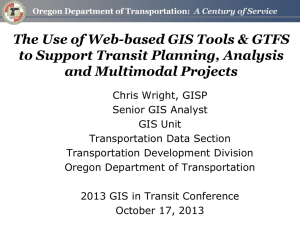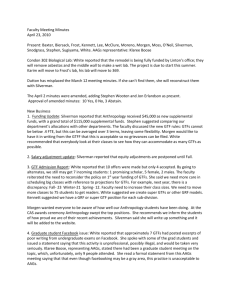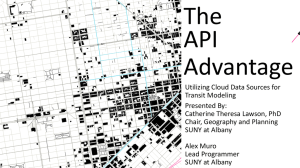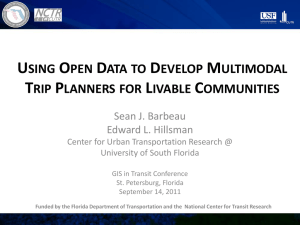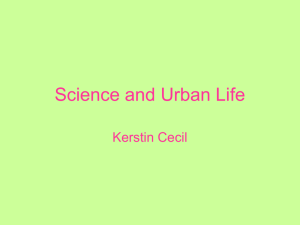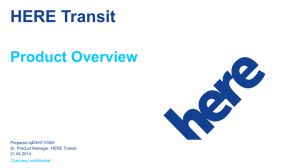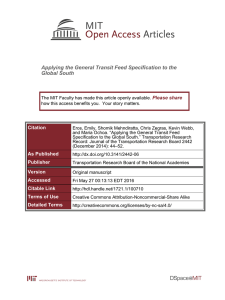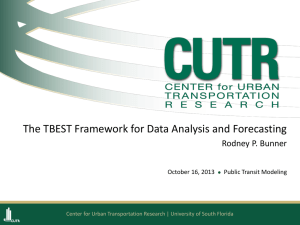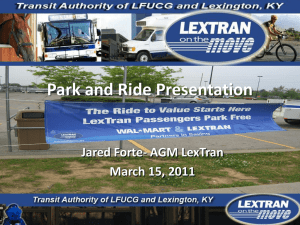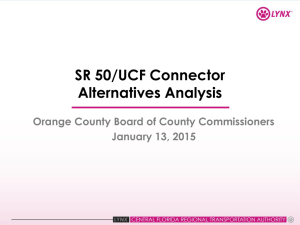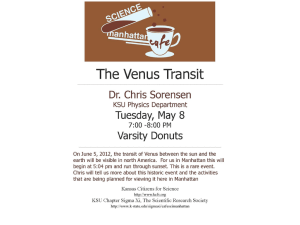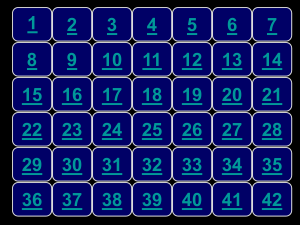GTFS: Not just for trip planning
advertisement
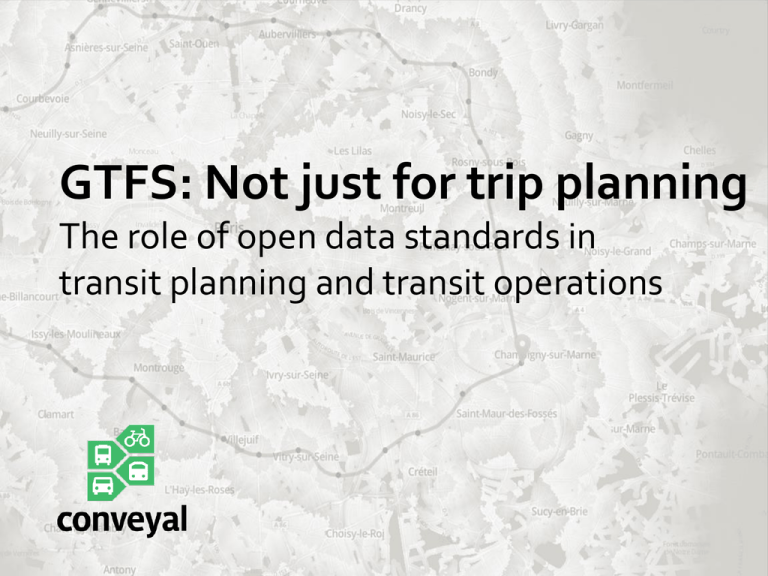
GTFS: Not just for trip planning The role of open data standards in transit planning and transit operations Transit data isn’t about maps. Network topology and temporality often more important dimensions than spatial. Traditional GIS data standards aren’t well suited to capture all relevant dimensions. Many applications require integrated understanding across dimensions. Transit data is about models. GIS isn’t expansive enough. Historically “transit data” has been vendor driven and application dependent. GIS standards bridge the gap but only for certain applications. Beyond GIS, things are messy. The case for GTFS: • Integrated: GTFS unifies relevant dimensions. • Simple & Extensible: GTFS isn’t everything for everyone, but can be a useful framework for most. • Interoperable: As an open exchange format GTFS bridges vendors and applications. The case for GTFS: GTFS is an exchange format… …however, it provides a useful framework for transit data and a means to integrate disparate applications and data services. GTFS as Data Plumbing GTFS isn’t just for communicating with external data consumers. An opportunity to replace proprietary, vendorcontrolled interfaces with open, standardsbased integration points. GTFS as “Enterprise Data” Not everyone has an enterprise GIS/transit data repository. Not everyone needs one. Creating GTFS may be a better starting point for many agencies. An Example: Mexico City Prior to project, no city-wide transit data of any kind. Project used GTFS as a framework to coordinate data collection and produce a unified, city-wide transit data product. An Example: Mexico City By the numbers: – Six transit operators – 129 routes – 5215 stops – Six weeks of effort to collect , validate and release a data product An Example: Mexico City Public benefit: thanks to open standards, within hours of the public data release multiple commercial providers offered journey planning and transit information services. Operational benefit: simple and effective framework for coordinating data collection and distribution within government. An Example: Mexico City Fundamentally, it’s not just a map of transit infrastructure. It’s a working model of transport, and a framework for collaboration. GTFS as Foundation for Modeling The data required by public transit information tools is far more precise and timely than inputs to existing modeling tools. GTFS opens doors for faster, simpler analysis. Mexico City: Population Accessibility NYC: Normal Service NYC: post-Sandy Service NYC: Percent Change Paris: GP15 The Value of GTFS Beyond public benefit, GTFS enables: • Clear framework for data collection and coordination • Open, non-proprietary integration points • Improved data inputs for modeling, and operational tools What’s ahead? Expanding portfolio of analysis and operational tools that leverage GTFS Looking for opportunities to develop (simple!) extensions that standardize planning and operational data needs. Thanks! Kevin Webb E: kwebb@conveyal.com T: @conveyal
